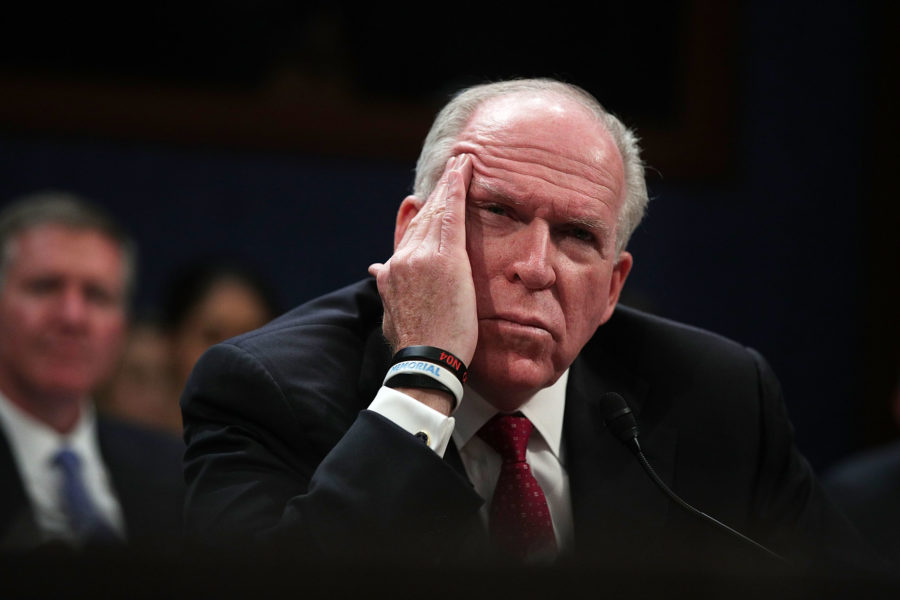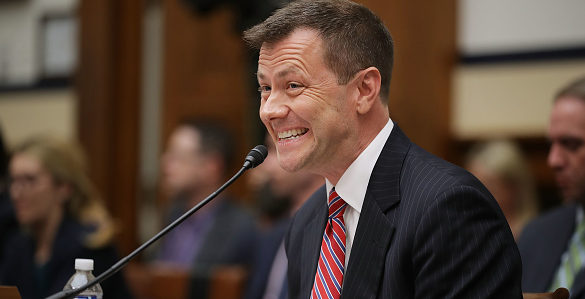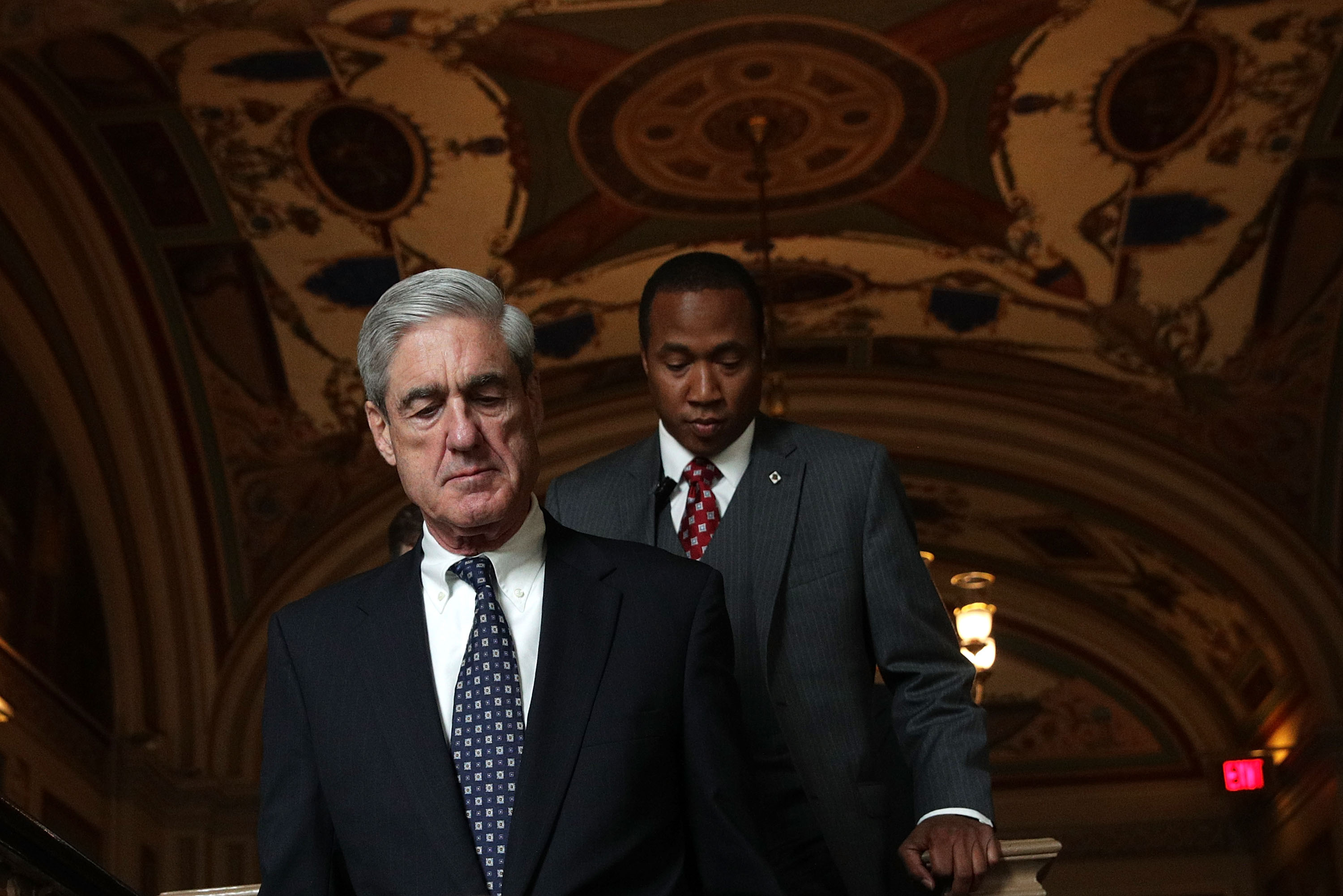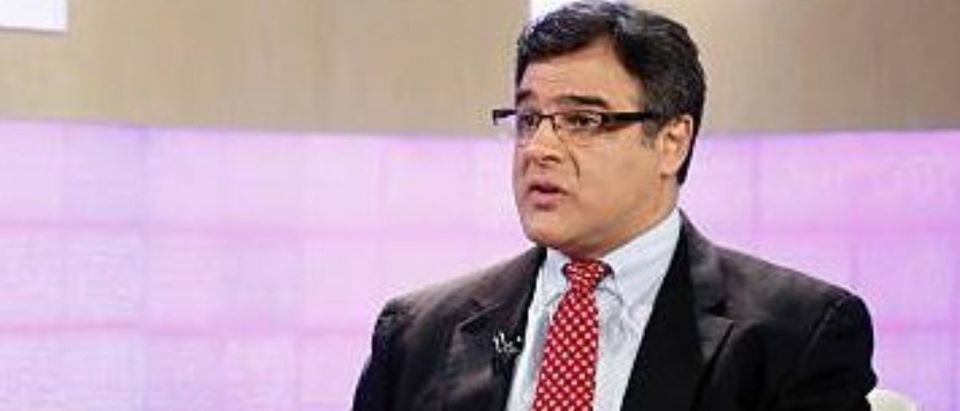- A former CIA officer who revealed the agency’s waterboarding program to the media claims that he was targeted for retribution by some of the same government officials investigating President Donald Trump.
- John Kiriakou tells The Daily Caller News Foundation what roles John Brennan, Robert Mueller, and Peter Strzok played in an investigation that he claims was intended to set him up with an espionage charge.
- Kiriakou claims he was targeted in a sting operation directed by Strzok.
When the FBI asked John Kiriakou to meet at the Washington field office in January 2012, the former CIA officer says he gladly agreed to the request.
“Anything for the FBI,” Kiriakou told the FBI agent who contacted him.
Months earlier, as a senior investigator on the Senate Foreign Relations Committee, Kiriakou had helped the FBI investigate a Japanese diplomat who had approached him offering a bribe.
Or so he thought.
Instead, Kiriakou says the FBI was running a sting operation against him for what he claims is payback for revealing secrets about the CIA’s waterboarding program.
The government officials behind that investigation have resurfaced in the probe of the Trump campaign, which officially began as an FBI matter on July 31, 2016 and is now overseen by the special counsel’s office.
As the Obama White House’s number 2 official on the National Security Council at the time, John Brennan ordered the Justice Department to charge Kiriakou with espionage, Kiriakou says. As FBI director, Robert Mueller formed a 12-person task force to investigate the 15-year CIA veteran. And as a top counterintelligence official at the FBI’s Washington office, Peter Strzok oversaw the investigation and arrested Kiriakou on Jan. 15, 2012.

Former Director of the U.S. Central Intelligence Agency (CIA) John Brennan testifies before the House Permanent Select Committee on Intelligence on Capitol Hill, May 23, 2017 in Washington, DC. (Photo by Alex Wong/Getty Images)
“It’s no coincidence that the same people who were implicated in my case are implicated in these attacks against the president,” Kiriakou told The Daily Caller News Foundation.
Kiriakou, 54, says that some of his supporters have directly raised the pardon issue with Trump.
Kiriakou’s nightmare began years before his interview with the FBI, in December 2007, after he revealed in an on-camera interview with ABC News that the CIA had waterboarded Abu Zubaydah, a Saudi national who the CIA falsely believed was al Qaeda’s No. 3 official. Kiriakou, the chief of counterterrorist operations in Pakistan, had helped capture Abu Zubaydah in March 2002.
He resigned from the CIA in 2004 and joined the private sector.
After the ABC interview, Kiriakou was approached by numerous journalists hoping to speak with the first former CIA official to go on the record to speak about the CIA torture program. In exchanges with three of those journalists, Kiriakou revealed the identities of two CIA officers, one of whom had helped him capture Abu Zubaydah.
Kiriakou maintains that his disclosure were inadvertent and that he believed he was confirming information that the journalists already had. While Kiriakou has expressed remorse for sharing the names with reporters, he and his supporters have argued that none of the officers were threatened or harmed, and no CIA methods exposed. The CIA submitted a “crimes report” after Kiriakou’s comments, but the George W. Bush Justice Department decided against opening an investigation.
That changed just after President Barack Obama took office in January 2009.
“What we found in discovery was a memo from John Brennan to the Justice Department saying ‘charge him with espionage,'” says Kiriakou.
When the Justice Department responded that Kiriakou had not committed espionage, Brennan responded, “Charge him with espionage anyway and make him defend himself,” says Kiriakou.
Years later, as CIA director for Obama, Brennan played an early role in the investigation of possible links between the Trump campaign and Russian government.
According to the book “Russian Roulette,” in August 2016, Brennan attempted to pressure then-Senate Minority Leader Harry Reid to publicize alleged links between the Kremlin and Trump campaign. (RELATED: Congressional Investigators Trying To Get To The Bottom Of John Brennan’s Role In Russia Investigation)
Brennan’s Kiriakou memos have not been made public. Kiriakou says they were provided to his attorneys solely for his case and returned to the Justice Department.

Deputy Assistant FBI Director Peter Strzok testifies before a joint committee hearing of the House Judiciary and Oversight and Government Reform committees in the Rayburn House Office Building on Capitol Hill July 12, 2018 in Washington, DC. (Photo by Chip Somodevilla/Getty Images)
Kiriakou was aware that he attracted scrutiny following his media appearances but believed he faced no legal jeopardy. After a stint in the private sector, Kiriakou took the job with the Senate Foreign Relations Committee, which was chaired at the time by then-Massachusetts Sen. John Kerry. It was in that role that Kiriakou says he was targeted in the FBI sting attempt.
The operation was undertaken by a 12-man “Kiriakou task force” set up by Mueller, who served as FBI director until 2013. The FBI declined comment on a list of questions about its investigation of Kiriakou.
In early 2011, Kiriakou met with the Japanese diplomat as he did with many other foreign dignitaries as part of his job. The pair communicated in Arabic, which Kiriakou speaks fluently, because the Japanese diplomat spoke poor English.
At the end of their fist meeting, Kiriakou says that the diplomat asked about his future plans. When Kiriakou said he was considering leaving the committee, the diplomat urged him to stay.
“No, I will pay you money,” the diplomat said, according to Kiriakou.
Kiriakou says he reprimanded the diplomat and reported the incident immediately to the Senate security office.
Days later, two FBI agents contacted Kiriakou and asked him to maintain contact with the diplomat and to arrange another lunch meeting. Kiriakou had four other meetings through April 2011 with the diplomat, summarizing all of them in detailed reports to the FBI.
Kiriakou recalls the day that he first met Strzok.
“It was the worst day of my life,” he told TheDCNF.
Kiriakou says he got a call from one of the FBI agents he had worked with on the Japanese diplomat case.
“You remember you helped us with that case about a year ago. Well we have a similar case, and we need your help,” Kiriakou recalls the FBI agent saying over the phone.
As The Washington Post reported on Aug. 13 in a profile of Strzok, the Kiriakou investigation helped cement the FBI agent’s reputation in the bureau. He would become better known — infamous, perhaps — after helping lead the investigations into former Secretary of State Hillary Clinton’s private email use and possible collusion between the Trump campaign and Russian government.
Strzok oversaw the latter investigation, which operated under the code name Crossfire Hurricane.

Special counsel Robert Mueller (L) arrives at the U.S. Capitol for closed meeting with members of the Senate Judiciary Committee June 21, 2017 in Washington, DC. (Photo by Alex Wong/Getty Images)
When Kiriakou visited the Washington Field Office, he says that he was asked to help investigators figure out how his photo and those of nearly two dozen more current and former CIA officers had ended up in the prison cell of a Guantanamo Bay prisoner.
Kiriakou told the agents he had no idea how the photographs ended up at Gitmo.
But about an hour into his interview, which was in a room used for conversations about classified topics, the FBI agents revealed their true interest in Kiriakou.
“In the interest of full disclosure, I should tell you that right now we’re executing a search warrant at your house and seizing your electronic devices,” one agent said, Kiriakou recalled to The New York Times in 2013.
Kiriakou first remembers Strzok after his interrogation.
“When I came out of this interrogation, I heard him say, ‘tell me he implicated himself,'” Kiriakou recalled of Strzok to TheDCNF.
“The other FBI guy said, ‘he didn’t, not really anyway.'”
“Am I under arrest?” Kiriakou asked.
“Not yet,” Strzok replied.
Kiriakou was arrested the following Monday. Strzok was the agent who handcuffed him.
“What they did was they played on my patriotism. What they did is they tricked me into going down there to help them catch a spy,” says Kiriakou.
Kiriakou, who now hosts a radio show for Sputnik International and works as an advocate for whistleblowers, was indicted on April 5, 2012 on five charges related to the disclosure of classified information, including the identities of covert CIA officers.
Kiriakou, who notes that he is the only CIA officer to face any charges related to the illegal torture program, initially planned to take his case to trial. But he says that the financial strain and a threat of decades in prison convinced him to accept a plea deal. He was sentenced to 30 months in federal prison on Jan. 25, 2013 after pleading guilty to leaking classified information to journalists.
Three espionage charges initially filed against him were dropped. He was released from prison on Feb. 3, 2015, after serving a 23-month sentence.
Strzok has since been fired from the FBI over text messages that he exchanged with FBI attorney Lisa Page. The messages showed a deep animus towards President Donald Trump, including one in August 2016 in which Strzok told Page that “we’ll stop” the Republican from becoming president.
Kiriakou is unable to hide his satisfaction at Strzok’s sudden downfall.
“Washington’s a small town, and karma’s a bitch,” Kiriakou says of Strzok’s fate. “And now it’s Peter Strzok’s turn to have his career and his reputation dragged through the mud.”
All content created by the Daily Caller News Foundation, an independent and nonpartisan newswire service, is available without charge to any legitimate news publisher that can provide a large audience. All republished articles must include our logo, our reporter’s byline and their DCNF affiliation. For any questions about our guidelines or partnering with us, please contact licensing@dailycallernewsfoundation.org.


